Episode two of Sir David Attenborough's latest series Mammals is all about how mammals are adapting to a new world – and a new wild.
Today, the planet is changing faster than ever, and mammals must adapt if they are to survive. In episode two of Mammals, find out how an abandoned minefield is providing Indian wolves with a sanctuary, out of reach of humans, and how American buffalo have been given a helping hand, seeing vast managed herds filling their ancestral plains once again.
What can we expect from episode two of Mammals?
Mammals have mastered every environment on the planet, but today's world is rapidly changing. As humans reshape almost everywhere on Earth, mammals must adapt. Many of them are doing this, and often in new and surprising ways.
In the busy fish markets of Chile, sea lions have become opportunistic feeders, foraging on marine scraps. But living so close to human civilisation has brought them into fierce conflict with stray dogs.
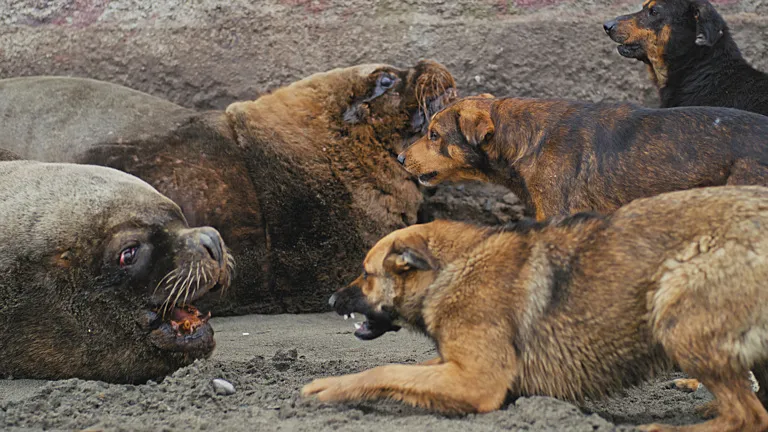
The many waterways of Singapore are home to otters – it's a challenging environment to live in, but one daring family has learnt how to cross busy highways right in the heart of the city.
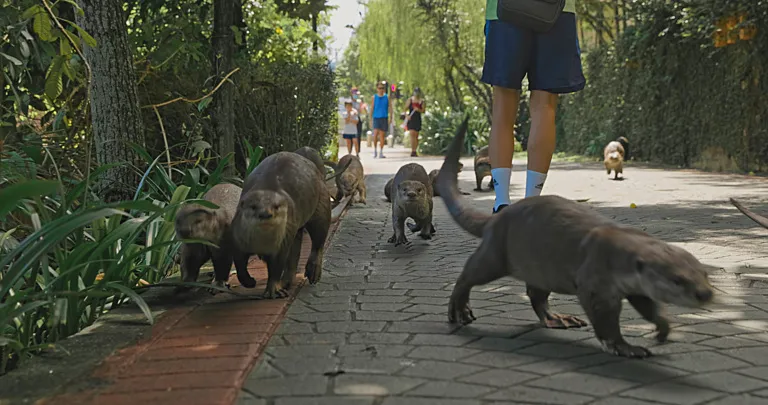
Fitting in with the human world is even harder when you're the size of a small building. To cope with this challenge, elephants have learnt to use the cover of darkness to search for a feast in the city, often leaving destruction in their wake.
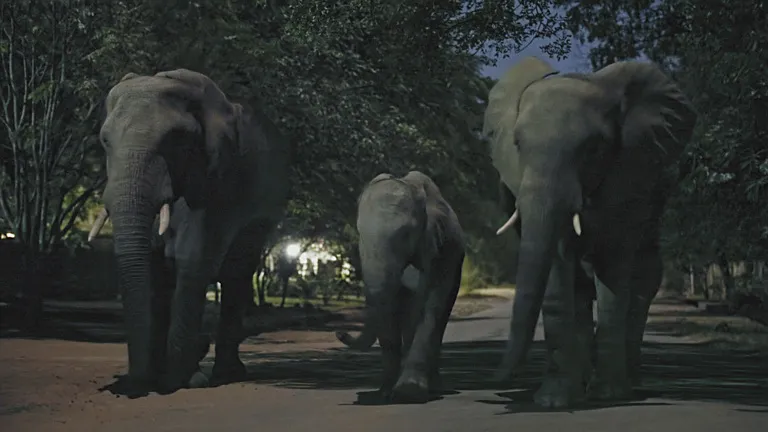
Our need to grow food has seen the influence of humans spread out of towns and cities and into the countryside. Malaysia's palm oil plantations appear devoid of life, but one resourceful creature, the pig-tailed macaque, is making a new home in this monoculture environment.
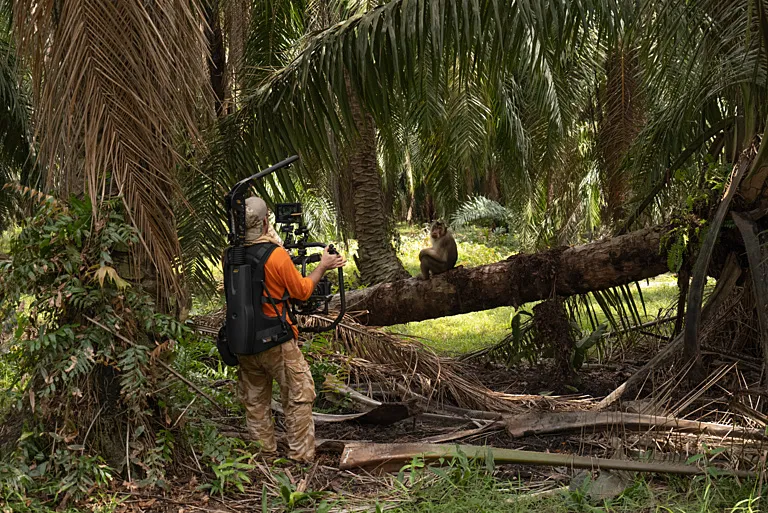
For Indian wolves, their keen sense of smell enables them to seek refuge in the one place humans don’t go – abandoned minefields left over from a war between Israel and Syria. Protected by the deadly mines, this unusual sanctuary has given the wolves a safe place to rear their young.
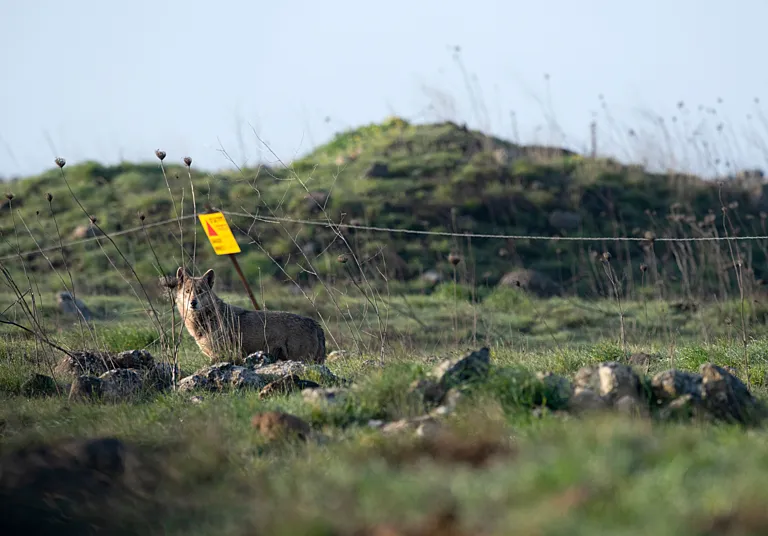
American buffalo, or bison, were driven close to extinction by hunting. Today, vast managed herds fill their ancestral plains once again.
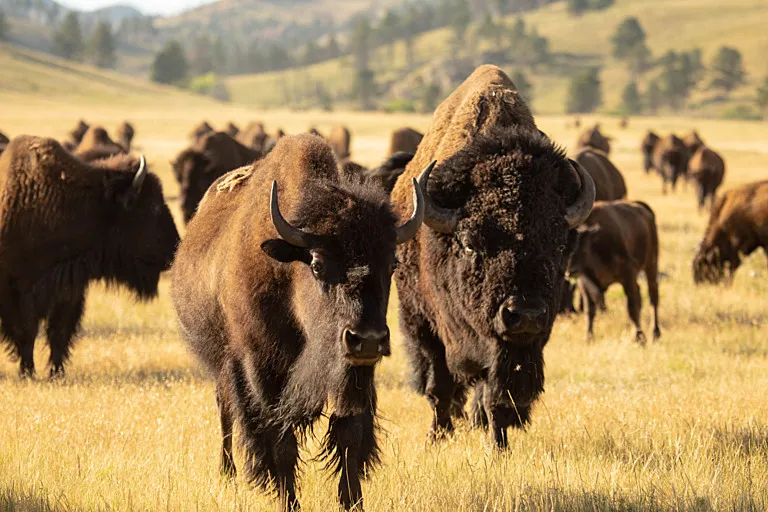
Many mammals have learnt to adapt to our changing world, for others the new pressures are more challenging. In Tanzania, water diverted for agriculture is forcing hippos to compete fiercely for space.
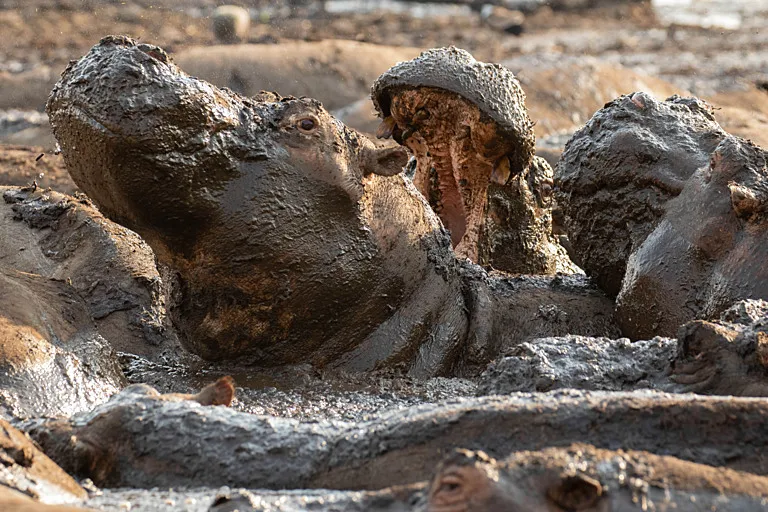
The national parks and reserves of Africa attract millions of visitors each year. These protected areas create essential space for animals like the cheetah, but they also bring them closer to people than ever before. The consequences can be deadly – in areas of high tourism, the chance of cheetah cub survival is greatly reduced.
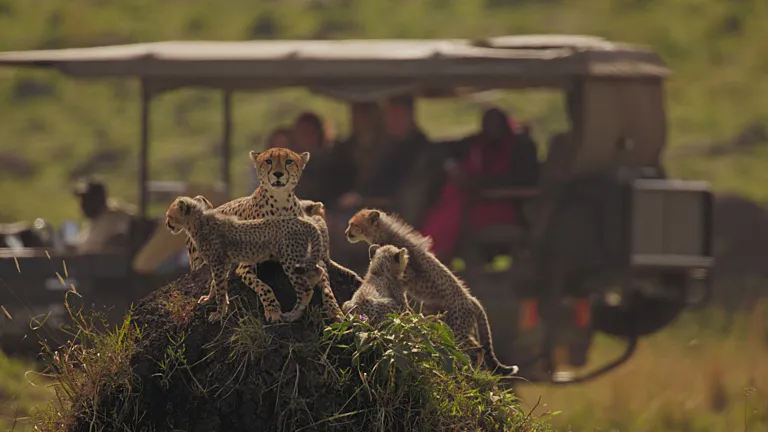
The blue whale has roamed the world's oceans for millions of years, but today’s seas are a busy highway for cargo ships. Collisions pose a serious threat to the planet's biggest animal, so scientists have been gathering valuable data in order to help.
When and where to watch episode two of Mammals
The second episode of Mammals will air on BBC One and BBC iPlayer at 7pm on Sunday 7 April. Episodes will be released weekly.
Find out more about Mammals.